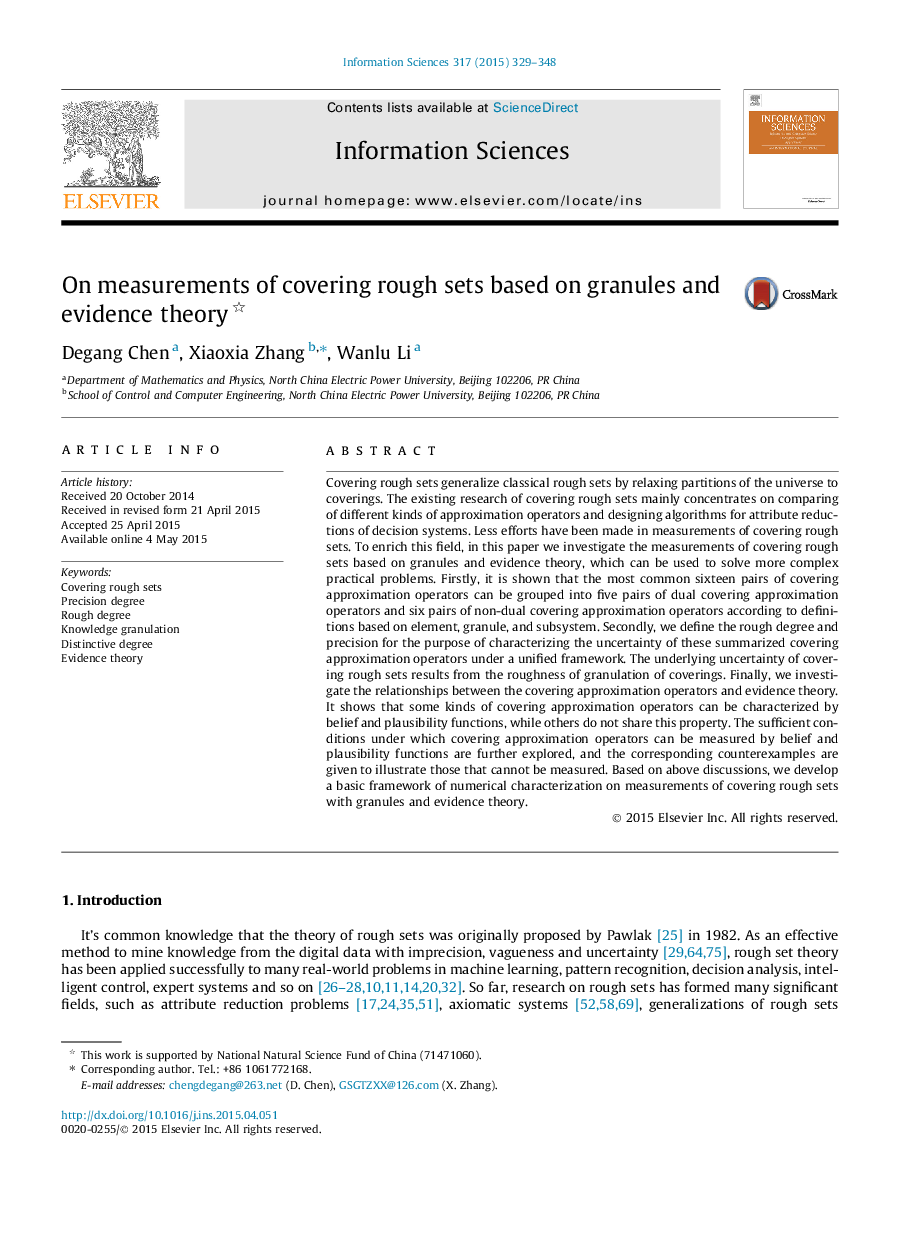| Article ID | Journal | Published Year | Pages | File Type |
|---|---|---|---|---|
| 391513 | Information Sciences | 2015 | 20 Pages |
Covering rough sets generalize classical rough sets by relaxing partitions of the universe to coverings. The existing research of covering rough sets mainly concentrates on comparing of different kinds of approximation operators and designing algorithms for attribute reductions of decision systems. Less efforts have been made in measurements of covering rough sets. To enrich this field, in this paper we investigate the measurements of covering rough sets based on granules and evidence theory, which can be used to solve more complex practical problems. Firstly, it is shown that the most common sixteen pairs of covering approximation operators can be grouped into five pairs of dual covering approximation operators and six pairs of non-dual covering approximation operators according to definitions based on element, granule, and subsystem. Secondly, we define the rough degree and precision for the purpose of characterizing the uncertainty of these summarized covering approximation operators under a unified framework. The underlying uncertainty of covering rough sets results from the roughness of granulation of coverings. Finally, we investigate the relationships between the covering approximation operators and evidence theory. It shows that some kinds of covering approximation operators can be characterized by belief and plausibility functions, while others do not share this property. The sufficient conditions under which covering approximation operators can be measured by belief and plausibility functions are further explored, and the corresponding counterexamples are given to illustrate those that cannot be measured. Based on above discussions, we develop a basic framework of numerical characterization on measurements of covering rough sets with granules and evidence theory.
